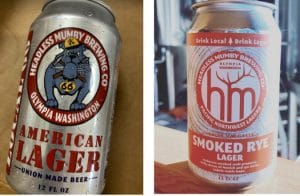Wage theft and worker misclassification are forms of exploitation that litter the construction industry, where unscrupulous employers take advantage of employees to pay them less than what they are owed. A recent Economic Policy Institute (EPI) study found that construction workers lose out on as much as $16,729 per year in income and job benefits; the EPI also reported that wage theft costs American workers as much as $50 billion per year — more than annual robberies, burglaries and motor vehicle thefts combined.
SMART locals are fighting against such practices from coast to coast – helping workers win the pay that they deserve.
“Wage theft is occurring everywhere in the construction industry, and employers will take advantage of those people who may not know what their rights are or have any idea of what prevailing wages are,” SMART Local 16 (Portland, Oregon) Business Manager Brian Noble explained in a recent episode of SMART News. “That’s who they prey on.”
SMART Local 16 has filed 10 prevailing wage complaints against 360 Sheet Metal, an aggressively anti-union contractor in Vancouver, Washington, whose workers previously went on strike after joining Local 16. The company was paying workers $12 to $15 an hour for fabricating duct in its shop, at a time when the prevailing wage (which applies to fabrication of ductwork in the state) was more than $65 an hour.
The Washington Department of Labor & Industries has resolved four of the 10 complaints so far.
“In those four cases,” Noble said, “they found that [the owner of 360 Sheet Metal] owed over $200,000 in back wages to 20 workers, and they assessed $115,000 in penalties for failing to pay prevailing wage in the shop.”
In Virginia, meanwhile, SMART Local 100 filed a complaint with the U.S. Department of Labor (DOL) alleging that a nonunion contractor on the Potomac Yards Metro Station project had misclassified sheet metal workers performing metal roofing work on the station. This resulted in them being paid approximately 60% less than the prevailing wage – hurting those workers and taking work away from Local 100.
“Misclassification is pretty rampant across the country,” explained Local 100 Marketing Director Chuck Sewell to SMART News. “Our contractors have to abide by certain rules, they have to pay certain rates, they know what the rates are, so that’s how they bid the projects. If you have these low-wage contractors come in and undercut everybody and get the project, it takes work hours from the local.”
The DOL investigation, which ended in the fall of 2022, found that the employees in question were, in fact, misclassified, resulting in more than $288,000 in back wages being recovered for eight workers.
Such wins against wage theft and worker misclassifications are critical for employees, ensuring that they are fairly compensated for their labor. They also demonstrate the crucial role unions play in representing all workers, including those who have yet to be organized.
“It’s important that we make sure all workers are represented and get what they deserve,” Noble concluded. “[It’s vital] that we stop these employers from undercutting our contractors and the industry, and most importantly, that these underrepresented workers are getting what’s truly owed to them.”
 One of those lagers was created specifically to pay tribute to the power of organized labor: the Local 66 Lager, a light, flavorful, American-style premium lager brewed with pilsner malt and flaked rice. As Maffeo explained in 2019, the Local 66 Lager represents an especially enjoyable way to commemorate all that Headless Mumby and the union have achieved together: namely, stellar working conditions and quality beer.
One of those lagers was created specifically to pay tribute to the power of organized labor: the Local 66 Lager, a light, flavorful, American-style premium lager brewed with pilsner malt and flaked rice. As Maffeo explained in 2019, the Local 66 Lager represents an especially enjoyable way to commemorate all that Headless Mumby and the union have achieved together: namely, stellar working conditions and quality beer.

 More than half of Washington’s short line rail miles aren’t up to modern standards, a recent study found.
More than half of Washington’s short line rail miles aren’t up to modern standards, a recent study found.